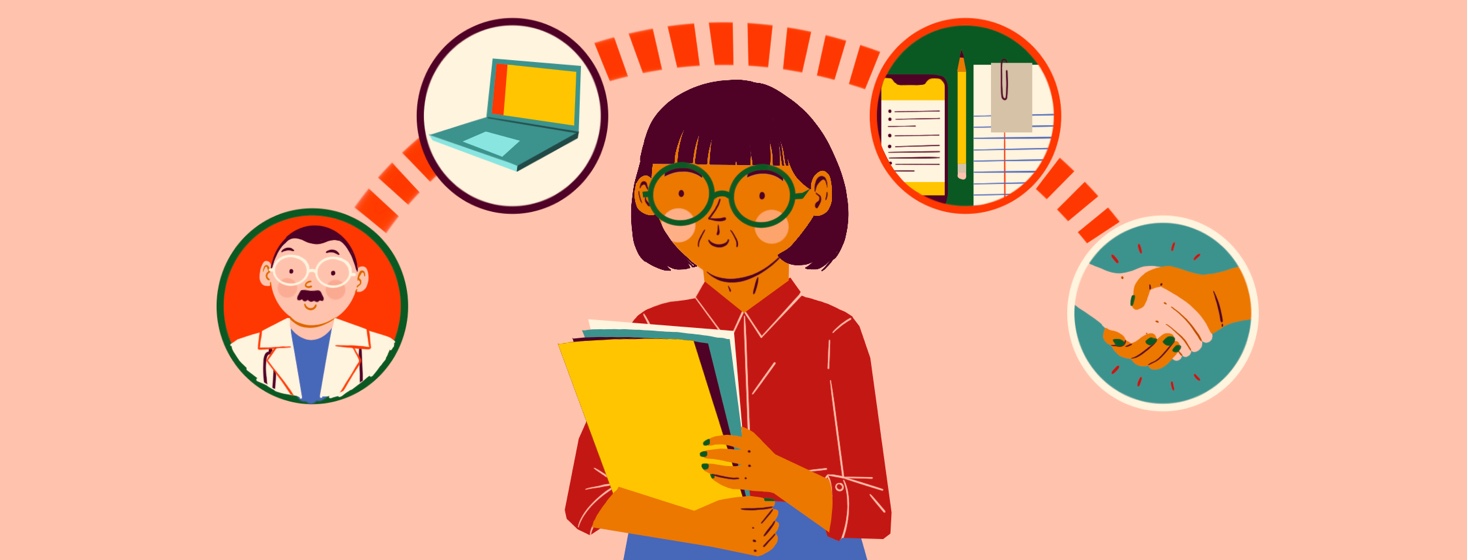Navigating Steps After Your Diagnosis
You’re probably reading this because you’ve heard the words “you have cancer”...with ovarian included. Chances are, I felt something similar to what you did...why? Because on January 19th, 2017, I heard the same words over the phone around lunchtime.
If you’re like me, you’re wondering how in the world this happened to you. You’ve probably googled all the things. I did the same. I had no idea what to do, how to navigate all of this, how I was going to survive, etc. We aren’t taught how to navigate a cancer diagnosis. It’s like we hear the words and have to start learning along the way while undergoing surgeries and treatments...but what if I could offer a few tips to try and navigate all of this, would that make it a little easier? I’d like to hope it just might, so here we go.
Fully understanding your diagnosis
This may sound obvious, but it may not be for some. What type of ovarian cancer do you have? There are a few, it’s not just ovarian cancer, it’s ovarian cancers. Each one is treated a bit differently. Not only is the type important, but also the stage. My suggestion here is to not only hear the number but ask exactly what this means. Meaning this...what other organs or parts of your body has the cancer been found in, does this change your treatment plan? All of these things are important in making a final decision on the next steps that lie ahead.
Second opinion, yes or no?
If you feel you’d be more comfortable with a second opinion, by all means, go for it! Don’t let others sway you in a different direction. This is a lot to take in. If you feel that you need to discuss this with someone else to make sure the “plan” is similar, go for it! And if it isn’t, ask why. Why did one suggest this path and not the other? How will this affect things in the long run? There is nothing wrong with getting a second opinion. Most oncologists realize this will happen...heck, most in the medical field realize this will happen at some point or another in their career.
Do I have the right oncologist?
For ovarian cancer, it’s important you see someone who specializes specifically in this type of cancer, a gynecological oncologist. Outside of that statement, the rest is up to you. Although I am familiar with several oncologists in my department, I wholeheartedly believe that I wouldn’t mesh as well with them.
For me, I needed to have some kind of personal connection. I needed to trust them, my life was literally in their hands. “Trust” may mean something different for you than it did for me. You may want the person who’s at the top of their field, regardless of their bedside manner, and that’s okay! You need to be comfortable with your oncologist, you’re going to be spending a lot of time with them. You need to trust them. The last thing you need is to be doubting your choice and questioning their care...and if you don’t feel these things, maybe you haven’t found the one for you.
Be patient
Don’t worry, I’m not sure I followed this step either. I wanted this stuff out NOW! Probably yesterday, if I’m being honest. The second you find out you have cancer, regardless of the type, we want it out and treatment started. But in order for that to happen, they need to know what they’re dealing with such as the make-up of the tumor(s), type, grade, etc. I had a friend recently diagnosed with another type of cancer, but all she kept asking me was how much longer she would have to wait, why is this taking so long, is this wait going to cause it to spread. I kept trying to reassure her that they needed all of this information in order to make an educated treatment plan. One thing could change the path the oncologist thought they were going to take. I know you want this out, I did too.
YOU get to choose
I know this sounds obvious, and it feels like you don’t have a choice right now, but there are some things you do get a say in. You get to choose how you do all of this; from the surgery to the treatments, and even how you share with others. While others may feel the need to tell you what to do or how you should be handling things, this isn’t happening to them, it’s happening to you. Right now you can be selfish...this is all about YOU right now.
I know you’re scared, I was too. I know you more than likely don’t know how to navigate all of this, I didn’t either. For a bit more on being newly diagnosed with cancer, I also have several episodes at Sips with Survivors where my co-host Vicki and I discuss this topic. Feel free to check it out since she may have ideas that I didn’t include above.

Join the conversation